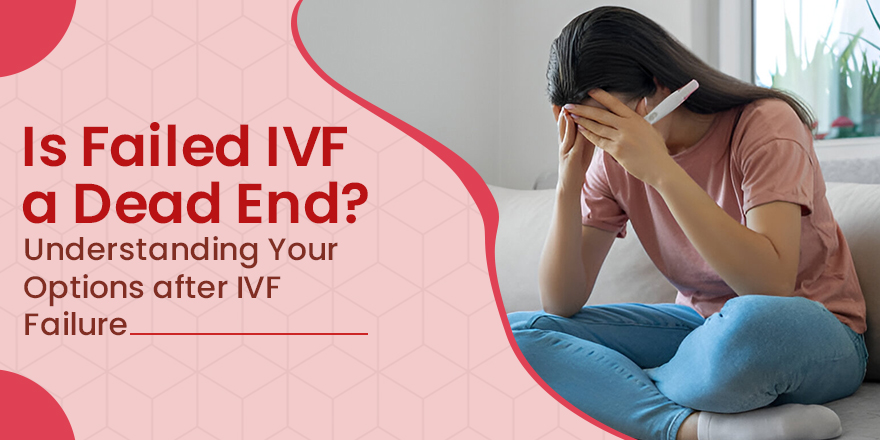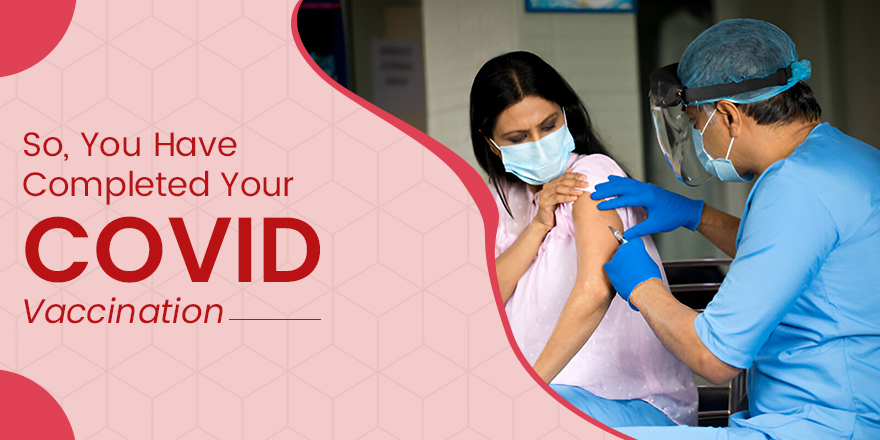Is Failed IVF a Dead End? Understanding Your Options after IVF Failure
For many couples, In Vitro Fertilization (IVF) represents hope and the possibility of becoming parents. When you invest time, emotions, and resources into an IVF cycle, you naturally dream of a positive outcome. However, sometimes the first attempt does not go as planned. A failed IVF cycle can feel devastating, leaving you wondering if this is the end of your journey.
The truth is, a failed IVF is not a dead end. In fact, many couples conceive successfully after one or more failed IVF cycles. Understanding why IVF can fail, what steps to take next, and how to improve your chances can make all the difference in your next attempt.
What Does Failed IVF Mean?
A failed IVF occurs when the treatment does not result in a pregnancy or when the pregnancy does not progress successfully. This can happen at different stages of the process:
- The eggs may not fertilize as expected.
- Embryos may not develop properly.
- Implantation may not occur in the uterus.
- Pregnancy may not progress beyond the early weeks.
Experiencing IVF failure does not mean you cannot have a baby. It simply means the right combination of medical, biological, and timing factors did not align during that cycle.
Common Causes of Failed IVF
There are several reasons why an IVF cycle fails. Understanding these can help you and your doctor make informed decisions moving forward.
- Egg Quality or Quantity Issues – Poor egg quality or a low number of eggs can affect embryo development. Age, ovarian reserve, and hormonal balance play a role.
- Sperm Quality Problems – Low sperm count, reduced motility, or abnormal shape can impact fertilization and embryo health.
- Embryo Development Issues – Some embryos may not grow as expected or may have genetic abnormalities that prevent implantation.
- Uterine or Endometrial Factors – Conditions like fibroids, polyps, scar tissue, or an irregular uterine lining can make implantation difficult.
- Lifestyle and Health Factors – Stress, poor nutrition, smoking, excessive alcohol, and untreated medical conditions can reduce IVF success rates.
The Role of Genetic Testing in IVF after Failure
One of the key advancements in fertility care is Preimplantation Genetic Testing (PGT). At Seeds of Innocens, we believe in giving your future baby the healthiest start possible. Genetic testing helps identify potential inherited conditions or chromosomal abnormalities in embryos before they are transferred to the uterus.
For couples who have experienced failed IVF cycles, recurrent miscarriages, or have a family history of genetic conditions, this testing can offer valuable insights. By selecting embryos with the best genetic health, we can improve the chances of implantation, reduce the risk of miscarriage, and give you greater peace of mind.
Signs of Failed IVF
Not all IVF failures show immediate symptoms, but some signs include:
- No pregnancy confirmation in a blood test after embryo transfer.
- Spotting or menstrual bleeding within days after transfer.
- No rise in pregnancy hormone (hCG) levels.
It is important to remember that light spotting after IVF does not always mean failure. Only a proper medical test can confirm the outcome.
What to Do After a Failed IVF Cycle
While it is natural to feel disappointed, the next steps can bring you closer to success.
- Talk to Your Fertility Specialist – Review your cycle in detail with your doctor. Egg and sperm quality, embryo grading, and implantation conditions will be studied.
- Consider Further Testing – Tests like hysteroscopy, genetic screening of embryos, or immune profiling may reveal issues that need correction before your next cycle.
- Make Lifestyle Adjustments – Eating well, maintaining a healthy weight, managing stress, and avoiding alcohol or smoking can directly impact fertility outcomes.
- Explore Treatment Changes – Your doctor may suggest modified ovarian stimulation protocols, donor eggs or sperm in specific cases, or PGT for embryo selection.
Additional Measures to Improve IVF Success
In some cases, your fertility specialist may recommend additional measures to improve the chances of success in future IVF cycles. While not every option is supported by strong evidence, these measures may be considered on a case-by-case basis:
- Practice Embryo Transfer: A mock transfer may be done before the actual procedure to ensure a smooth entry into the womb.
- Saline Scan: Helps detect any abnormalities inside the womb.
- Endometrial Scratch: A minor procedure that may improve implantation.
- Assisted Hatching: If you’ve had repeated failed cycles with good-quality embryos, making a tiny opening in the embryo’s shell may improve implantation chances.
- IMSI (Intracytoplasmic Morphologically Selected Sperm Injection): If sperm quality is very poor, IMSI may help select healthier sperm.
- Embryo Glue: A special adhesive solution used before transfer that may improve implantation chances.
- Hysteroscopy: A small operation that allows doctors to look inside the womb and correct abnormalities.
Your doctor will help decide whether any of these add-on treatments are right for you. It is important to weigh the benefits and evidence before proceeding.
Why One Failed IVF is Not the End
Statistics show that IVF success rates often improve in subsequent attempts. Every failed IVF cycle provides valuable insights that can improve the next treatment plan. Many couples achieve pregnancy on their second or third attempt.
Emotional Recovery after IVF Failure
Fertility treatment is emotionally demanding. Coping with a failed IVF cycle requires self-care, support from loved ones, and sometimes professional counseling. Remember:
- Your feelings are valid.
- It is okay to take a break before trying again.
- Sharing your journey with support groups or other couples can help you feel less alone.
How Seeds of Innocens Supports You after IVF Failure
At Seeds of Innocens, we understand the pain and disappointment of a failed IVF cycle. Our approach focuses on:
- Detailed cycle analysis to understand the causes
- Advanced fertility treatments tailored to your needs
- Emotional support and counseling to help you heal and prepare
- A compassionate team that walks with you at every step
Our goal is to turn setbacks into stepping stones, giving you the best possible chance of success in your next attempt.
Final Thought
A failed IVF is not the end of your dream to become a parent. It is a pause, an opportunity to understand what went wrong, and a chance to try again with a more informed plan. Many couples who face IVF failure go on to experience the joy of holding their baby.
If you have experienced IVF failure, you do not have to face the next step alone. Our specialists at Seeds of Innocens are here to guide, support, and give you hope for a brighter outcome.
Parenthood is still possible. Your journey can continue.
Also Read: Why Does IVF Fail? 8 Reasons for IVF Failure





